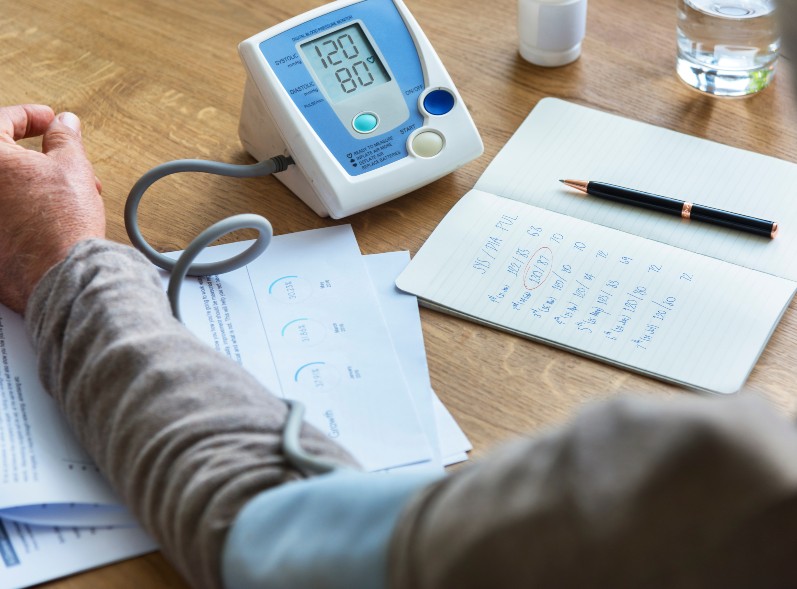
There are many modifiable risk factors associated with stroke and dementia. By knowing your risks and managing them, you can protect your brain’s health as you age.
Stroke, Dementia, and Neurodegenerative Disorders
Alter Your Course
We are now starting to understand how lifestyle and modifiable medical risks are associated with stroke and dementia, including multi-infarction dementia (multiple mini-stroke dementia) and Alzheimer’s dementia, which make up the two most common forms of dementia. Other forms of dementia, including Lewy Body, frontotemporal dementia, and neurodegenerative disorders such as Parkinson’s and multiple sclerosis, have also now been shown to have associations with lifestyle and modifiable medical risks. These devastating diseases can have an altered course if you know your own risks and start to manage those risks in your life.
Because damage to the blood vessels in the brain can cause dementia or strokes, it’s very important to maintain good blood vessel health. You can do this by monitoring and controlling blood pressure, cholesterol levels, and diabetes. Managing these factors can decrease your risk of developing dementia, neurodegenerative disorders, and heart attacks/strokes, and also play a key role in protecting brain health.

MODIFIABLE RISKS
High Cholesterol (dyslipidemia)
There is mounting medical evidence with respect to the role that high cholesterol (also known as dyslipidemia) might play in dementia. Currently, the recommendations are more related to heart health rather than brain health, but over time these recommendations will be extended to stroke and brain health.
Diet, exercise, and weight management are non-medication approaches to high cholesterol. Most people can modify cholesterol by up to 20% with these lifestyle changes. If those are not effective in lowering your cholesterol, there may be a role for cholesterol-lowering medications.
Order your cholesterol panels in the comfort of your own home and see where your risks are sitting.
STAY ACTIVE
Insulin Resistance, Prediabetes and Type 2 Diabetes
It is estimated that over the course of the next decade, insulin resistance, prediabetes and type 2 diabetes will triple in incidence within the North American population. Although there are several reasons why this condition develops, it’s mainly due to our change in dietary and exercise habits over the past century. Impaired insulin resistance and glucose metabolism abnormalities are now considered to be the cornerstone to multiple chronic diseases including ASCVD, stroke, dementia, and are now also associated with 13 different forms of cancer.
Insulin resistance can impact your blood vessels and increase your risk of blood vessel damage, dementia, and neurodegenerative diseases.
Conversely, good management of your diabetes can help to reduce your risk. Alterations in fasting glucose levels and fasting insulin levels are an indication that insulin resistance may be present. Understanding the relationship between certain cholesterol particles, such as triglycerides and HDL, gives us further hints when you may be undergoing impaired glucose metabolism and insulin resistance. Alterations in fasting glucose levels and fasting insulin levels are an indication that insulin resistance may be present. Understanding the relationship between certain cholesterol particles, such as triglycerides and HDL, gives us further hints when you may be undergoing impaired glucose metabolism and insulin resistance.


A hemoglobin A1C (HbA1c) test is a blood test that shows what your average blood sugar (glucose) level has been over the past three months
Your A1C test result is given in percentages. The higher the percentage, the higher your blood sugar levels:
- A normal A1C level is below 5.7%
- Prediabetes is between 5.7 to 6.4%. Having prediabetes is a risk factor for getting type 2 diabetes. People with prediabetes may need retests every year.
- Type 2 diabetes is above 6.5%
- The A1C test should be performed at least twice a year to watch for trend changes
There are non-medication things that you can do to help manage diabetes, including some of the same lifestyle factors that we’ve mentioned above, such as diet and exercise. Many people may also require medications to manage their diabetes if non-drug approaches can’t bring the blood sugars or HbA1c to manageable levels.
CONTROL YOUR HEALTH
High Blood Pressure (hypertension)
High blood pressure, or hypertension, can be associated with strokes and increased risk of vascular dementia. Managing high blood pressure can reduce your risk of dementia. High blood pressure is generally defined as a blood pressure over 120/80 mmHg. You may hear your healthcare provider refer to ‘systolic’ or ‘diastolic’ blood pressure; these refer to the top and bottom numbers of your blood pressure. The top number is called the ‘systolic’ blood pressure, and the bottom number is called the ‘diastolic’ blood pressure.
There is now strong medical data that early control of blood pressure will significantly reduce your risk of heart disease, stroke, dementia and neurovascular disorders.


KNOW THE NORMS
Blood Pressure Targets
For most people, the top number (systolic) should be less than 140 and the bottom number (diastolic) should be less than 90. However, for some people with diabetes, the target might be less than 130/80 mmHg. For others who might be at higher risk of heart disease, or for some older adults or those who are frail, the targets might be different.
According to the Lancet Commission report on dementia prevention, the evidence around dementia risk reduction says you should aim to maintain a systolic blood pressure (top number) of 130 mmHg or less in midlife from around 40 years old.
Talk to your doctor about the best blood pressure target for you to balance the benefits of managing your blood vessel health while ensuring that you are not running into adverse effects of your blood pressure getting too low.
MODIFY YOUR RISKS
Managing High Blood Pressure
There are non-medication things that you can do to help manage high blood pressure, including some of the other lifestyle factors that we’ve mentioned above, such as:
- Diet
- Exercise
- Reducing alcohol consumption
- Stress reduction
Medications known as anti-hypertensives are often needed if non-drug approaches can’t bring the blood pressure to a reasonable target. Sometimes people might need more than one class of anti-hypertensive drug. At this time, anti-hypertensive drug treatment for hypertension is the only known effective preventive medication for dementia (although there is some new research on medications for diabetes that is also showing promise).

FIND OUT TODAY
Take Control of Your Health
Order a Foundation 17 Panel today. The ability to monitor your stroke and neurodegenerative disease risks is at your fingertips.
